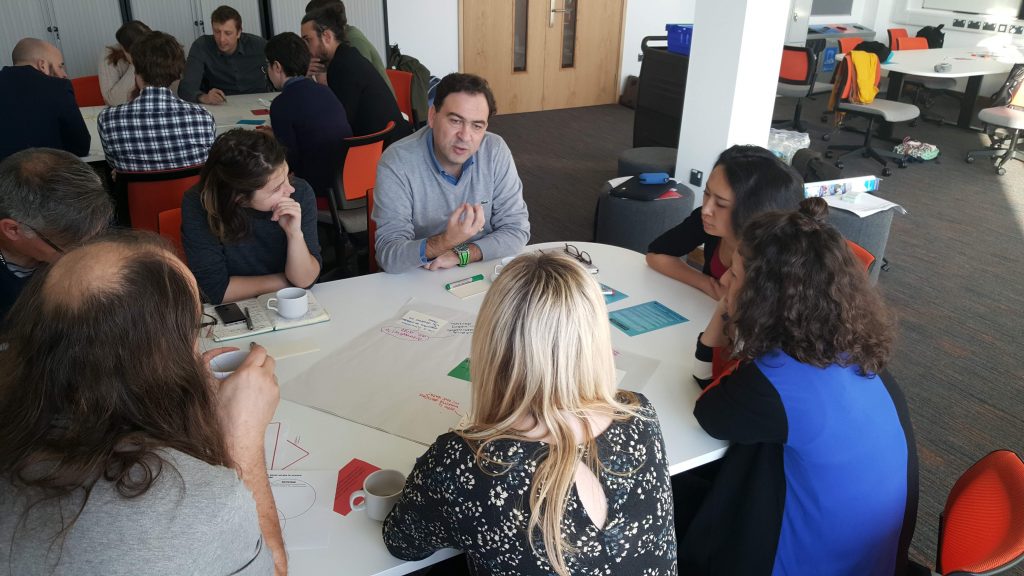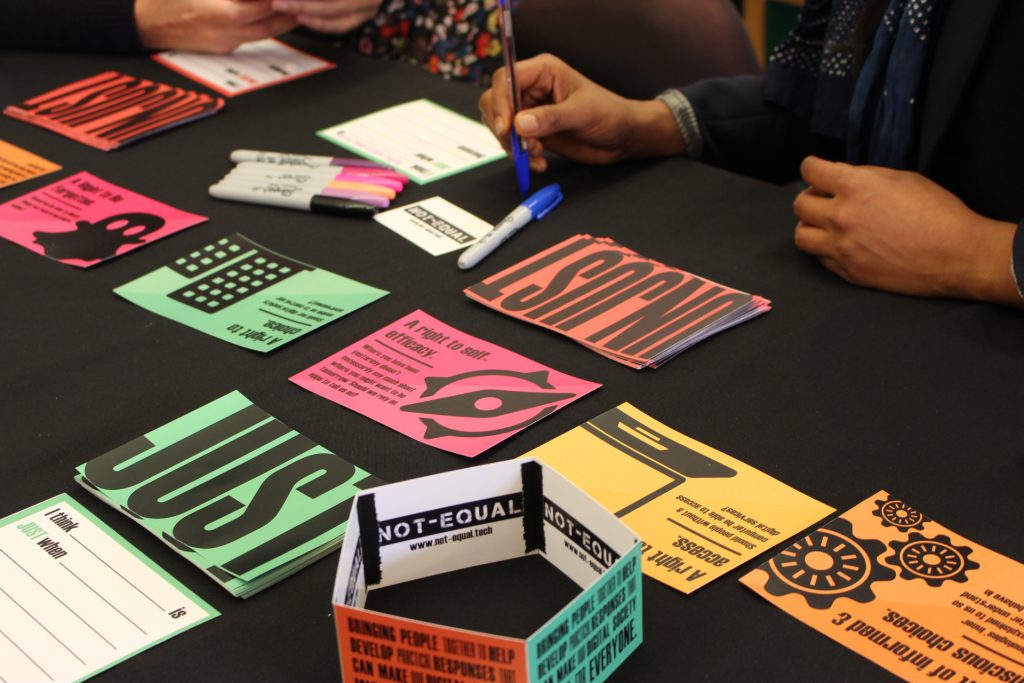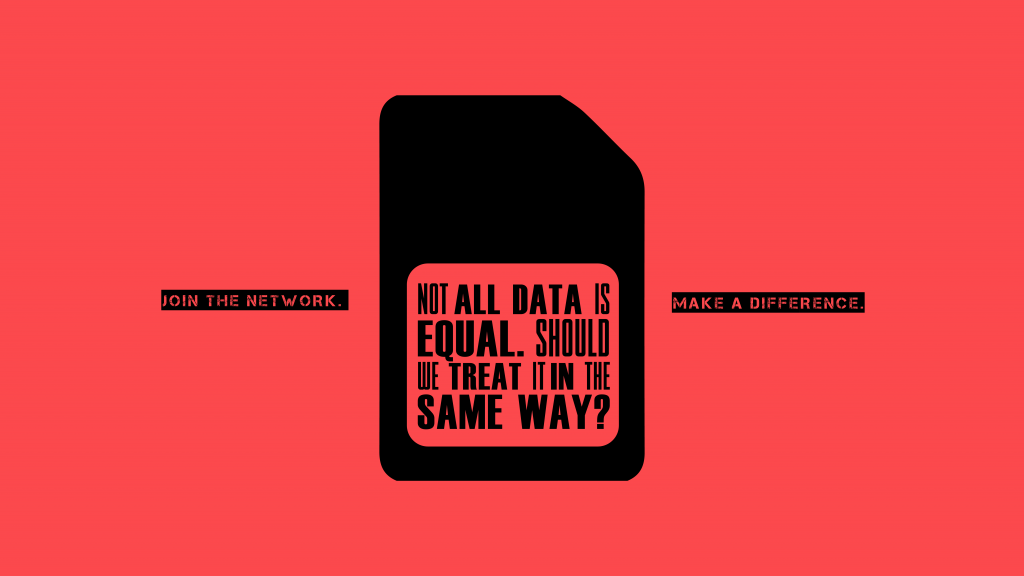From supporting platform workers to tackling fake news, these seven projects funded by Not-Equal offer a snapshot at some of the most important issues facing technology and social justice in 2020.
The seven projects were awarded over £290k as part of the second funding call launched by the £1.2m UKRI project Not-Equal, funded by EPSRC through the Digital Economy Theme (EP/R044929/1).
“Never has there been a more important time to look at the implications and opportunities that digital technology can bring to social justice. From looking at how we can tackle the impact of fake news, to dealing with issues relating to COVID-19 – these seven projects will develop innovative responses to real issues in people’s daily lives,” said Clara Crivellaro, lead investigator, Newcastle University.
“We’re so excited to fund these seven projects at what we believe to be a critical juncture in how we collectively use and understand technology, particularly around our three core critical challenges: digital security, algorithmic social justice and fairer futures for businesses and workforce.”
Not Equal is led by Newcastle University and includes Co-Investigators from Sussex, Royal Holloway and Swansea Universities.
The seven projects
The seven pilot projects, summarised below, will last between six and eight months, with funding between £30.2k and £39.8k (all amounts awarded at 80% FEC).
Co-Designing a Food Delivery Platform Co-operative
In the UK, the food delivery industry is big business, however, there still remains a lack of employment law protections for many of their ‘self-employed workers’. This project from University of Exeter and Autonomy Think Tank looks to understand the challenges facing food delivery platform co-operatives, which can offer a fairer model of doing business for the workers of the platform delivery economy.
Tackling Fake News via Fake People: Co-creating a toolkit to help young people recognise fake news
Fake news reaches more people and spreads more quickly than the truth and is believed around 75% of the time. Fake news is a real threat to health, society and democracy. This project by University of Glasgow, Northumbria University and eQuality Time will co-create a toolkit with young-people aged around 13 and social media influencers will run workshops to help them make better choices around their sources of information, and how they share information.
Equally Digital/Digitally Equal (ED/DE)
ED/DE is an international partnership between four co-operatives – Space2, Leeds, UK; Espacio Nixso, Argentina; C-Innova, Colombia and; Media Lab MX, Mexico – and the University of Leeds, looking to examine and technologically respond to the challenges of inequality and enablement in a moment of unprecedented change caused by the COVID-19 pandemic. It will evaluate the current practices and methods of the four NGOs from the UK and South America to develop new sharable and collaborative practices fit for the current global condition.
Crowdsourcing Wage Pledge
Crowdworking platforms such as Amazon Mechanical Turk and Prolific Academic often pay workers around two dollars (USD) per hour and most requesters pay less than five dollars. This project between Open University and IG Metall will formally institute a ‘Crowdsourcing Wage Pledge’ for the purpose of improving wages for crowdworkers, thus ensuring fairer futures for digital workers in the platform economy.
Designing Security Infrastructures for Communities with Sensitive Data
This project will work with initiatives of migrant women across two countries; UK & Greece. These initiatives promote empowerment and active citizenship with a particular focus on gender-based violence. Newcastle University, Angelou Centre, Union of Women’s Associations of Herakleion (UWAH), and Sociality will work closely to create opportunities for mutual learning between such migrant women’s communities and produce a digital system that will enable them to complement as well as broaden their work online.
Covid-19 Debt Advice
According to Citizens Advice, the coronavirus outbreak has led to financial turmoil for millions of UK residents, undermining fairness, equality, and economic opportunities. This project by Swansea University, BPO Insolvency Ltd, and The Speakeasy Law Centre aims to support greater capacity for legal advice pro-bono clinics by developing, evaluating, and deploying an online COVID-19 debt advice tool.
MiniCoDe – Minimise algorithmic bias in Collaborative Decision Making with Design Fiction
Understanding human values and unconscious biases in the design and introduction of algorithmic services is a critical first step in addressing a fairer future within food justice and distribution. This project by University of Hertfordshire, Northumbria University, Newcastle West End Foodbank, Cambridge Spark, WeandAI will use a design fiction approach to develop a toolkit to enable multiple stakeholders to explore socio-technical biases in the collaborative process of designing socio-technical systems for fair food administration.
These projects were funded through Not-Equal’s Call for Collaborations process.



